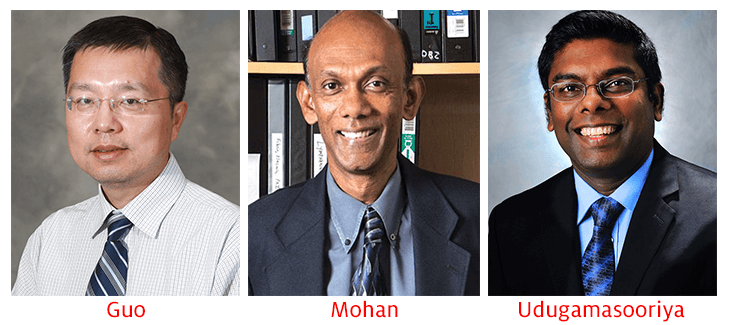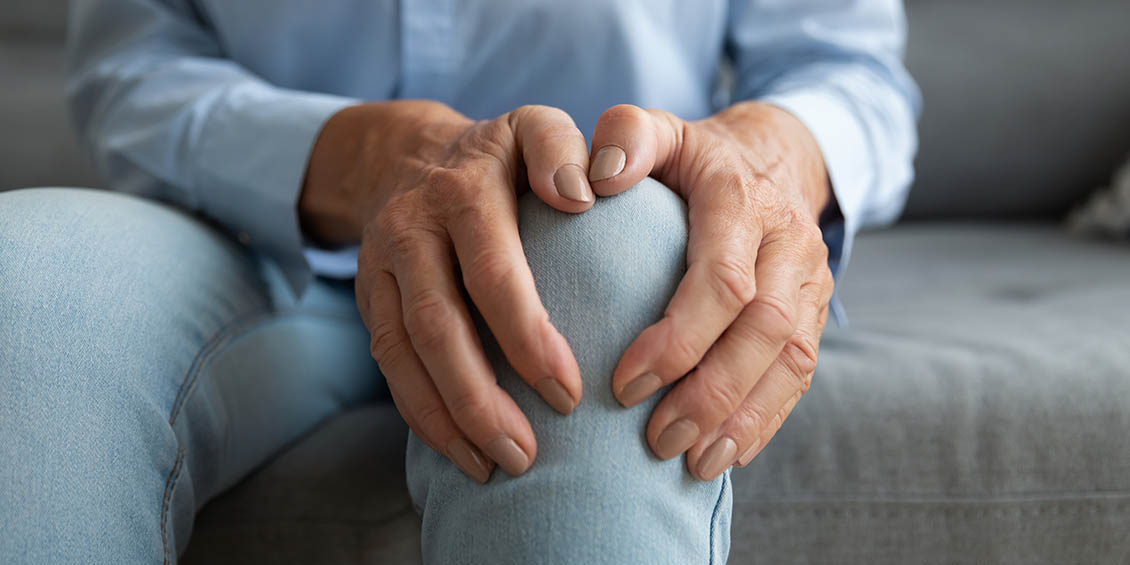Research News
Siphoning the Fuel for Inflammation
UHCOP Researchers Receive $400K Rheumatology Foundation Grant to Further Study Compound to Inhibit Inflammatory Activation in Autoimmune Disorders
December 21 — Sometimes interesting discoveries come about when you’re looking for something entirely different. University of Houston College of Pharmacy’s Bin Guo, Ph.D., associate professor of pharmaceutics, and Gomika Udugamasooriya, Ph.D., associate professor of medicinal chemistry, usually focus their research efforts on cancer compounds that activate the immune system to fight the disease. Instead, they found one that inhibited, rather than activated, immune response.
Udugamasooriya and Guo have been awarded a $400,000 FY2023 Innovative Research Award from the Rheumatology Research Foundation to pursue how this discovery could help in the treatment of rheumatoid arthritis (RA).
Both cancer and RA are conditions that involve inflammation in the body. While cancer treatments focus on stimulating the immune system, autoimmune disease treatments seek to suppress the overactive immune system, where the body begins to attack itself. So, when these researchers who were looking for immune system-promoting substances found one that did just the opposite, they began exploring the possibilities.
The compound, called IFRA3Q1, inhibited collagen-induced arthritis in mice. That wasn’t what Guo and Udugamasooriya expected.
 "In my lab, we have a unique screening technology to develop new candidates for biologically important molecules to cure diseases," Udugamasooriya said. "We can identify new compounds. We found a new one we thought could treat cancer, but we found that it could instead work on arthritis. And so, our studies went in a new direction."
"In my lab, we have a unique screening technology to develop new candidates for biologically important molecules to cure diseases," Udugamasooriya said. "We can identify new compounds. We found a new one we thought could treat cancer, but we found that it could instead work on arthritis. And so, our studies went in a new direction."
Guo noted that they couldn’t have proceeded without some important guidance from Chandra Mohan, M.D., Ph.D., Hugh Roy and Lillie Cranz Cullen Endowed Professor in UH Cullen College of Engineering’s Department of Biomedical Engineering with a joint faculty appointment in the College of Pharmacy.
"Dr. Mohan is a collaborator and third partner in this project," Guo said. "He’s the real expert in rheumatology. The two of us develop the compound, and Dr. Mohan gives us the expertise to develop this. His support is invaluable."
The researchers said they expect to observe significant anti-arthritic activity with the peptoid compound IFRA3Q1 and its optimized derivatives, which they say are likely to show improved activity in suppressing inflammation and arthritis. Specifically, the compound inhibits the cytokine protein known as interleukin-15 (IL-15), which induces the proliferation of T cells and natural killer cells that play key roles in inflammation.
"Current drugs are expensive and have many side effects," Udugamasooriya said. "Our compound is easy to develop, economical and safe, which is very encouraging. We hope studies will establish a new class of compounds to do this."
The research is expected to begin in July 2022 and continue for two years. Guo and Udugamasooriya have submitted an international patent application for the compound and derivatives as potential therapeutics for RA and other autoimmune/inflammatory diseases and disorders.
